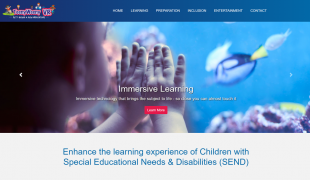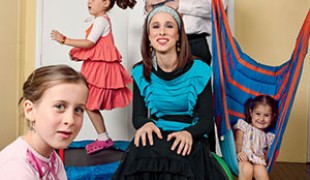- 6344
- 444
- 10
- 10
- 0
- Help Ukraine
About the solution
Mark Chipperfield created a team of carers to take care of his mum at home when she diagnosed with Alzheimer.
‘I went to look around a number of homes. But all I saw were grey headed people with glazed eyes not doing much at all. I couldn’t see anything positive for her in that setting, and as I had promised my father I would look after her I decided I had to organise something myself,’ Mark said.
‘I didn’t think she would survive somewhere like that. I thought if she could stay in her own home in familiar surroundings with a team of people who could really get to know her, she would be able to retain her dignity and sense of self as much as possible,’ Mark said.
To help make sure his mother remained safe and well, Mark installed a CCTV monitoring system and exit sensors that triggered alerts to a call centre and a local carer. However, despite these measures, there were a few worrying incidents where his mother, Jean, went missing and was later found walking in the streets.
Over the years Mark built up a band of eight carers, the ‘Jean Team’ through word of mouth and very careful selection, and he was able to sustain after security the NHS continuing funding.
‘It is always best to get carers through recommendation and if you can’t do that check their references and follow your instincts, Mark said.’
‘It’s not easy to arrange something like this yourself. Even if you get funding, no one gives you much guidance. I’ve had to set up something that runs like a small business with a health and safety policy, pay roll, meetings and training. All from miles away when I have a full-time job and a family,’ Mark said.
‘Many of her carers have been with her for years and they really do love her. One said they had told her their dog had died and she put her arm around them to comfort them, so there is still a lot going on there. We are lucky we have such a brilliant team who really love what they do and are able to see the person behind this terrible illness,’ Mark said.
‘People with Alzheimer’s may need constant support for quality of life. If Jean had gone into a care home she wouldn’t have got the very personal one-to-one care she has now, which stimulates her and makes her feel valued. In fact, I am sure she wouldn’t be here today,’ Mark said.
Adapted from: https://www.alzheimers.org.uk/get-support/publications-and-factsheets/de...
More information: https://www.alzheimers.org.uk/get-support/publications-and-factsheets/de...
This solution shall not include mention to the use of drugs, chemicals or biologicals (including food); invasive devices; offensive, commercial or inherently dangerous content. This solution was not medically validated. Proceed with caution! If you have any doubts, please consult with a health professional.
DISCLAIMER: This story was written by someone who is not the author of the solution, therefore please be advised that, although it was written with the utmost respect for the innovation and the innovator, there can be some incorrect statements. If you find any errors please contact the patient Innovation team via info@patient-innovation.com
-
-
427
-
0
-
4825

Teeny Weeny VR- a new way of terapy for autistic children.
CAREGIVING
COMMUNICATION: Communicating, whether by speaking, listening, or other means
Autism
AI algorithm
Anxiety
Difficulty concentrating or making decisions
Social withdrawal or isolation
Promoting self-management
Managing Neurological Disorders
Building Supportive Community Relationships
Promoting inclusivity and social integration
Improving Speech and Communication
To improve Treatment/Therapy
Preventing (Vaccination, Protection, Falls, Research/Mapping)
Raise awareness
Caregiving Support
Child and Adolescent Psychiatry
General and Family Medicine
Neurology
Pediatrics
Psychiatry
United Kingdom
-
-
-
672
-
6
-
11442

Parents create solutions for children with special needs
-
-
-
630
-
0
-
8878

Music to help autistic children
COMMUNICATION: Communicating, whether by speaking, listening, or other means
CAREGIVING
Listening to music
Autism
Podcast
Educational/Leisure device (book, toy, game...)
Social Media
Difficulties with speech
Difficulties learning how to talk
Promoting self-management
Managing Neurological Disorders
Promoting inclusivity and social integration
Improving Speech and Communication
To improve Treatment/Therapy
Raise awareness
Caregiving Support
Child and Adolescent Psychiatry
Neurology
Pediatrics
Psychiatry
United States
-
 en
en